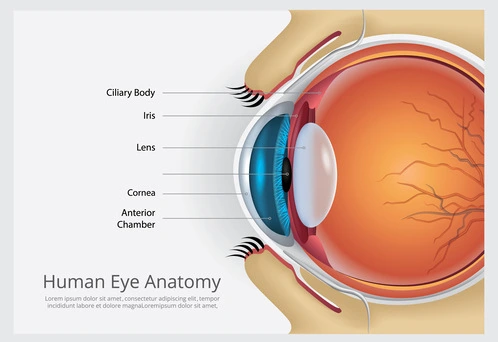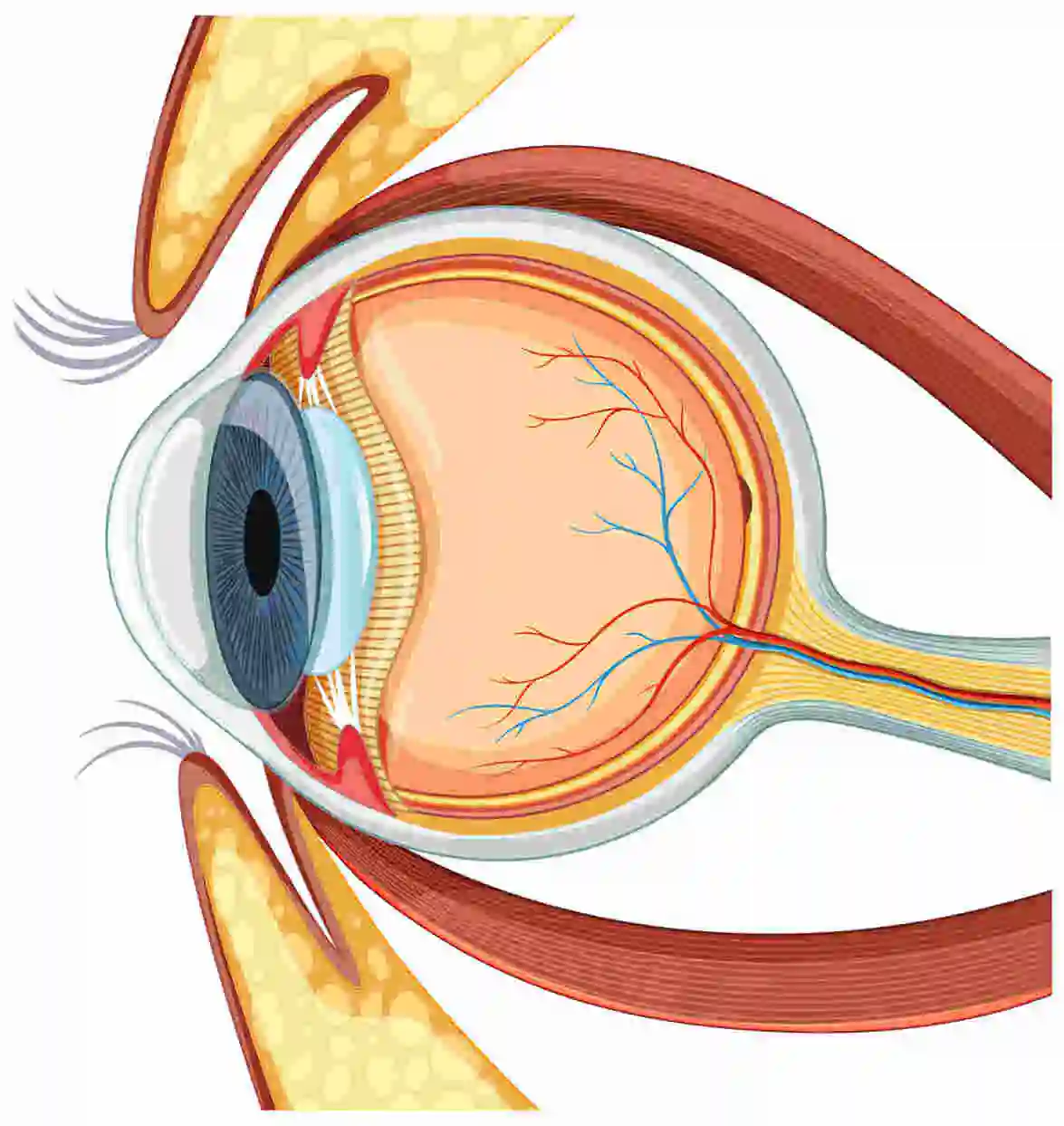Ever seen weird flashes of light or a dark curtain blocking your vision? These could be warning signs of a detached retina or a serious eye problem. If you don't get help quickly, you could lose your sight forever.
This post will explain what retinal detachment is. We'll also cover why it happens, what symptoms to look for, how doctors check for it, and how they fix it. By understanding this condition, you'll know when to get help right away and keep your vision healthy.
So, let's jump in and learn how to take care of your eyes!
What is Retinal Detachment?
The retina is a thin layer of tissue at the back of the eye responsible for converting light into neural signals sent to the brain for visual recognition. Retinal detachment occurs when the retina pulls away from its normal position, disrupting blood supply and essential nutrients, which can result in vision loss if not treated promptly.

Causes of Retinal Detachment
When germs breach our defenses, they can cause a range of eye infections, some mild and some more serious. Here are some common examples:
Aging:
As we age, the vitreous gel inside the eye becomes more liquid and can shrink or
pull away from the retina, increasing the risk of detachment.
Trauma:
Direct trauma to the eye or head can cause the retina to detach.
Family History:
Individuals with a family history of
retinal detachment are at a higher risk.
Eye Conditions:
Certain eye conditions such as lattice
degeneration or high myopia (nearsightedness) can predispose individuals to retinal
detachment.
Previous Eye Surgery:
Individuals who have undergone
cataract surgery or other eye procedures may be at an increased risk.


Symptoms of Retinal Detachment
Recognizing the symptoms of retinal detachment is crucial for seeking immediate medical attention.
Common symptoms include:
Floaters:
Sudden onset of floaters (spots or lines in your field of vision).
Flashes of Light:
Seeing flashes of light in your peripheral vision.
Shadow or Curtain Effect:
A shadow or curtain descending
over your field of vision.
Blurred Vision:
Gradual or sudden loss of central or
peripheral vision.
If you experience any of these symptoms, seeing an eye care professional immediately for a comprehensive eye examination is essential.
Diagnosis and Evaluation
Diagnosing retinal detachment typically involves a thorough eye examination by an ophthalmologist or optometrist.
The following diagnostic tests may be performed:
Visual Acuity Test:
To assess how well you can see at various distances.
Slit-Lamp Examination:
Tusing a specialized microscope
to examine the structures inside your eye.
Retinal Examination:
Dilating your pupils to examine
the retina for signs of detachment.
Ultrasound Imaging:
In cases where a direct
examination is challenging due to bleeding in the eye.
Early diagnosis is crucial in determining the appropriate treatment approach and improving outcomes for patients with retinal detachment.
Schedule a comprehensive eye exam at Elite Eye Care in New York City to ensure your eye health.


Treatment Options
The primary goal of treating retinal detachment is to reattach the retina and prevent further vision loss. The treatment choice depends on various factors such as the extent of detachment, location, and individual patient characteristics.
Common treatment options include:
Scleral Buckling:
A surgical procedure where a silicone band is placed around the sclera
(white part of the eye) to push against the retina and close any tears.
Vitrectomy:
A microsurgical procedure where
vitreous gel is removed from the eye and replaced with a gas bubble to help
reattach the retina.
Pneumatic Retinopexy:
Injection of a gas bubble
into the vitreous cavity followed by positioning your head in specific ways to
help seal off any retinal tears.
Following surgery, patients may need to maintain specific head positions, use prescribed eye drops, and attend follow-up appointments nearby as part of their recovery process.
Final Thoughts
Retinal detachment is a serious ocular emergency that requires immediate attention from an eye care professional. Understanding this condition's causes, symptoms, diagnosis, and treatment options is vital for preserving vision and preventing irreversible damage to the retina.
By staying informed about retinal detachment and seeking timely medical intervention when experiencing concerning symptoms, individuals can improve their chances of successful treatment outcomes and long-term visual health.
For any eye related concerns, you can visit Elite Eye Care, New York.

